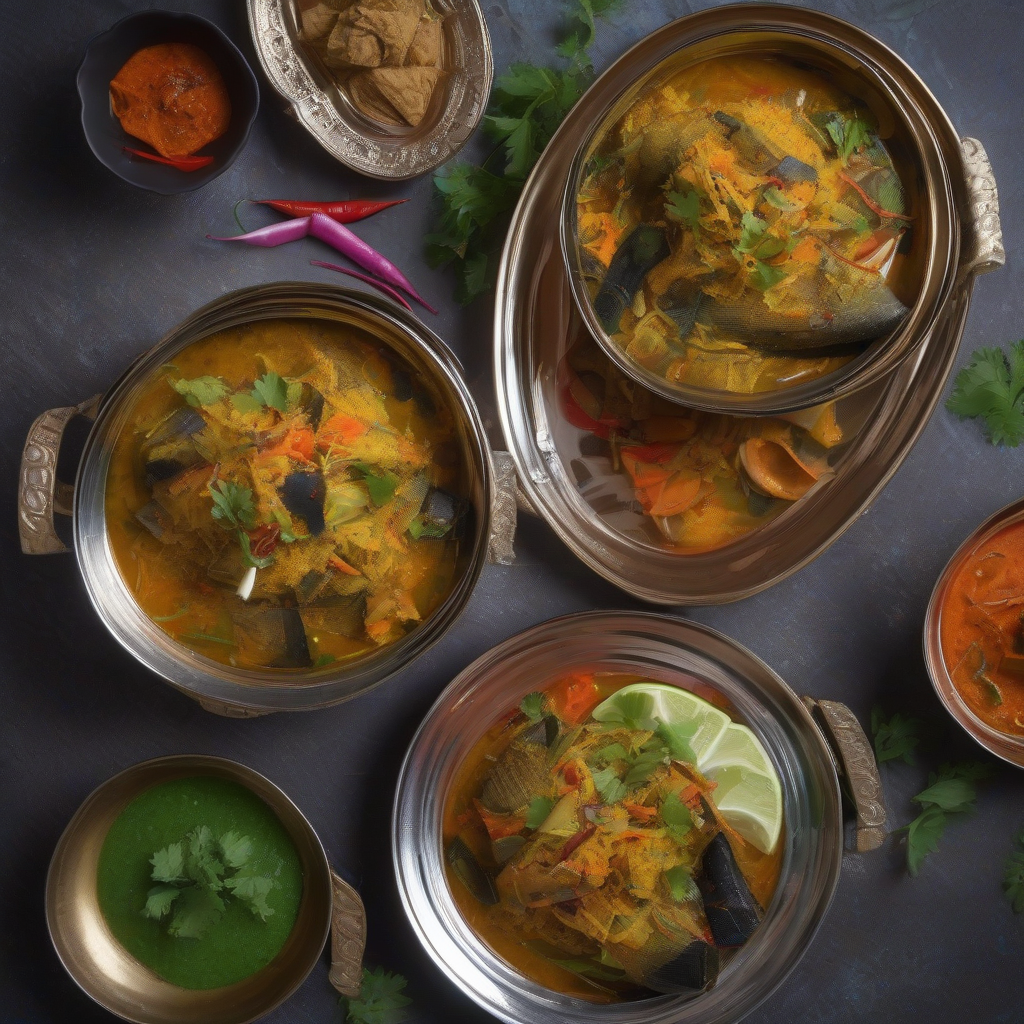Eronba: A Taste of Manipur in Your Kitchen, Boss!
Namaste doston! Kem cho? Sat Sri Akal! Chef Curry Do’pyaza here, back in your kitchens with a recipe that’s a little off the beaten path, but trust me, absolutely delightful. Today, we’re diving deep into the heart of Manipuri cuisine with a dish called Eronba.
Now, I know what you’re thinking: “Fermented fish? Curry, are you trying to scare us away?” Relax, my friends! Eronba is an explosion of flavour – a tangy, spicy, and utterly unique experience. Think of it as the Indian cousin of kimchi, but with a personality all its own.
Eronba: More Than Just a Meal, Yaar!
Eronba is a staple in Manipuri households, especially during the hot summer months. It’s believed to have cooling properties, which is perfect for beating the Indian heat. You’ll often find it gracing the table during festivals and family gatherings. It’s a dish that’s deeply connected to the culture and traditions of Manipur. This dish is not just food, it is a way of life for the Manipuris.
A Little History Lesson, My Friends
Eronba is an ancient dish, passed down through generations of Manipuri families. The use of fermented fish, called Ngari, is a testament to the ingenuity of the people. It’s a way to preserve fish in a time before refrigeration, adding a distinctive umami flavour to the dish. The exact origins are shrouded in the mists of time, but one thing is certain: Eronba is a dish with a rich and fascinating history.
Let’s Get Cooking!
Preparation Time: 15 minutes
Cooking Time: 20 minutes
Ingredients:
- 100g Ngari (Fermented Fish)
- 2 medium sized aloo (potatoes), boiled and mashed
- 1 large baingan (eggplant), roasted and mashed
- 1 Mirchi (Green chili), finely chopped (adjust to your spice level, boss!)
- 1/2 inch Adrak (Ginger), finely chopped
- 1 medium sized Pyaaz (Onion), finely chopped
- A handful of Hara Dhaniya (Fresh coriander leaves), chopped
- Salt to taste
Step-by-Step Instructions:
- Prep the Fish: First, lightly roast the Ngari on a tawa or pan for a few minutes. This intensifies the flavour and makes it easier to flake.
- Mash It Up: In a large bowl, combine the mashed aloo (potatoes) and baingan (eggplant).
- Add the Zing: Flake the roasted Ngari and add it to the bowl.
- Spice It Up: Add the chopped Mirchi (green chili), Adrak (ginger), and Pyaaz (onion).
- Mix It Well: Mix everything together thoroughly with your hands. Don’t be afraid to get messy! This is where the magic happens.
- Season to Taste: Add salt to taste. Remember, the Ngari is already salty, so be careful not to overdo it.
- Garnish and Serve: Garnish with fresh Hara Dhaniya (coriander leaves) and serve immediately.
Curry’s Top Tips for Eronba Perfection:
- The Fish is Key: The quality of your Ngari will make or break this dish. Try to find a good quality product from a reputable source.
- Roast the Eggplant Right: Roasting the baingan (eggplant) over an open flame gives it a smoky flavour that elevates the dish.
- Adjust the Spice: Don’t be shy with the Mirchi (green chili), but adjust the amount to your liking. Remember, you can always add more, but you can’t take it away!
- Fresh is Best: Use the freshest ingredients possible for the best flavour.
Eronba: Your Way!
- Gas Stove: The traditional method. Simply roast the eggplant and Ngari on the open flame.
- Induction Stove: Use a cast iron pan for roasting the eggplant and Ngari.
- Pressure Cooker: Not recommended for this recipe.
- Oven: You can roast the eggplant in the oven at 200°C (400°F) until soft.
- Microwave: Not recommended for roasting the eggplant.
- Air Fryer: You can air fry the eggplant at 180°C (350°F) until soft.
- Slow Cooker/Crockpot: Not recommended for this recipe.
Nutritional Information (Approximate):
- Calories: 150-200 per serving
- Protein: 8-10g
- Fat: 5-7g
- Carbohydrates: 20-25g
Note: Nutritional information may vary based on specific ingredients and portion sizes.
Serving Suggestions:
Eronba is traditionally served with steamed rice. It can also be enjoyed as a side dish with other Manipuri delicacies. For a truly authentic experience, serve it with a dollop of fermented soybean paste, called Hawaijar.
Curry’s Call to Action:
So there you have it, my friends! Eronba: a delicious and unique dish that’s sure to impress your family and friends. I urge you to try this recipe at home. Experiment with the ingredients, adjust the spice level to your liking, and make it your own. This is a dish that’s meant to be shared and enjoyed. Happy cooking, and remember, food is love!
